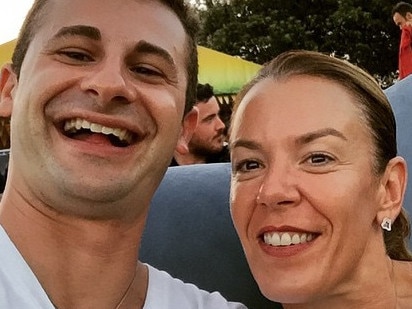What went on inside mind of fraudster Melissa Caddick
A forensic psychiatrist has told a court Melissa Caddick likely had narcissistic personality disorder and the police raid on her house could have caused a huge blow to her self-esteem.
A forensic psychiatrist says when Melissa Caddick’s house of cards came crashing down during a police raid, it might have been enough to cause her to take her own life, a court has heard.
Ms Caddick disappeared from her Sydney eastern suburbs home in November 2020, just a day after her Dover Heights mansion, which doubled as her business premises, was raided by the AFP and ASIC.
The corporate regulator has accused her of running a Ponzi scheme and fleecing $20m-$30m from investors.
A coronial inquest is examining the circumstances surrounding her mysterious disappearance after a foot which was matched to the 49-year-old washed up on a southern NSW beach.
Forensic psychiatrist Dr Kerri Eagles told the inquest on Thursday that after reviewing Ms Caddick’s medical record and witness statements, it appeared she had narcissistic personality disorder.

She said that for people suffering the disorder, their self-esteem and sense of self-worth hinged on the admiration of others.
Dr Eagles told the court that as a result of being charged, Ms Caddick would have seen herself as being in danger of losing her work, loved ones and “respect and admiration” of others.
She told Deputy State Coroner Elizabeth Ryan that when ASIC raided her home, it plausibly had a “very huge” impact to her self-esteem.
“Ms Caddick appeared to experience problems with low mood, depression and anxiety and problems coping with extraordinary stress … The low mood symptoms persisted as long as the stress persisted,” Dr Eagles said.
She said that people with similar disorders have been known to take their own lives after a “major insult to their self-esteem”.

An oceanographer has previously told the court it was possible a body could have gone into the water at Dover Heights on the morning of November 12, 2020 and washed up on the NSW south coast three months later.
A running shoe, containing a right foot which was later DNA matched to Ms Caddick, washed up on Bournda Beach on February 21, 2021.
The court has heard that Ms Caddick’s husband took 30 hours to report her missing after she was heard walking out the front door of their home in the early hours of November 12, 2020, never to be seen again.
In his three days in the witness box, Mr Koletti has also been pressed on inconsistent statements to police about the events of the days that followed.
“Have you told police different things about what occurred in that period from the 11th to the 13th in order to try to avoid discussing what you know occurred,” Counsel assisting Jason Downing asked.
“No,” Mr Koletti replied.


He was also denied that at the time she went missing Ms Caddick was alive and well and that he delayed reporting it to police to give her a head start.
“Did you delay reporting her missing until that point in order to give her time to try to go somewhere?” Mr Downing asked.
“No,” Mr Koletti said.
“Or end her own life?” Mr Downing asked.
“I did not,” Mr Koletti replied.
The inquest continues.



